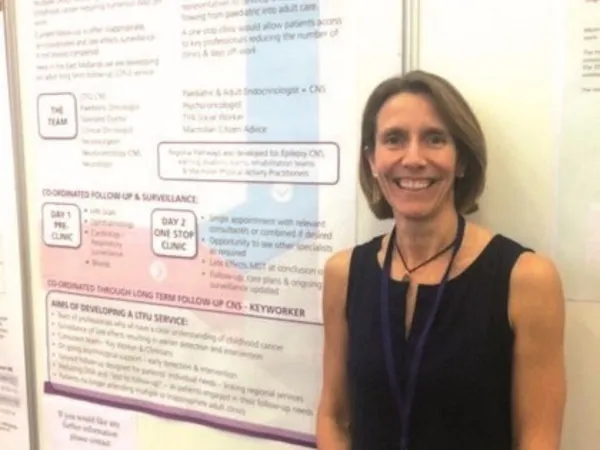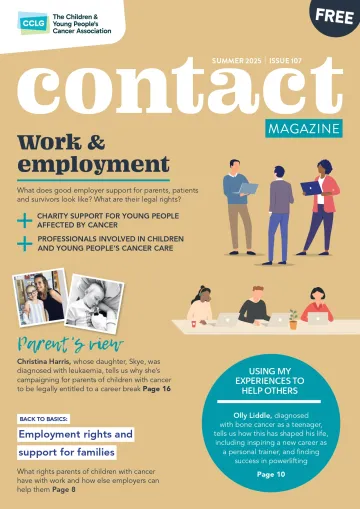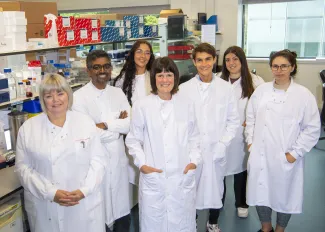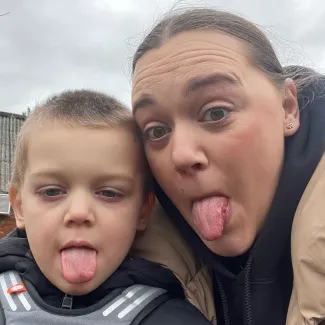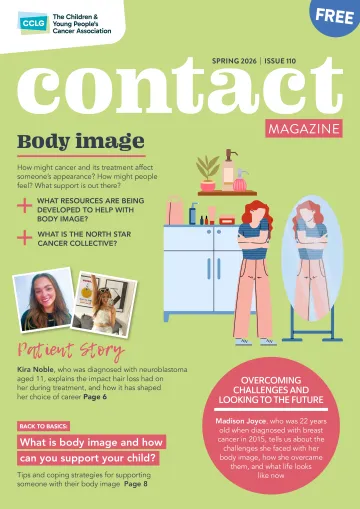Q: Tell us about your career so far?
A: I started my nursing career in 1987 at Nottingham School of Nursing. After qualifying, I worked within neurosciences until 1991 when I moved to Liverpool and began my training at Alder Hey as a registered sick children’s nurse. My passion for oncology nursing began at the end of my first year in my general training when I spent 10 weeks on the children’s oncology ward. I moved back to Nottingham in 1993 and have worked in paediatric oncology ever since.
Following the birth of my eldest son almost 26 years ago, I decided to go part time to stay at home to raise my family. It was during this time I moved across into our day care unit and supported one of our consultants who ran the late effects service, with this being my first introduction to after cure care.
Q: Tell us about your role in supporting children and their families affected by childhood cancer?
A: Over the past 10 years I’ve worked full time supporting survivors across the East Midlands. My role is to act as a key point of contact for them and their families. I provide information surrounding their past treatment plus any late consequences connected to this and their individual diagnosis.
A huge part of this role is health education, to enable survivors to take responsibility for their own healthcare needs and wellbeing, as well as signposting or referrals to mental health support. During key stages within education, close links will be made with schools, colleges or universities to ensure appropriate support and adjustments are in place to enable survivors to reach their own potential.
Q: Why is attending long-term follow-up (LTFU) appointments so important?
A: Attending a LTFU/late effects appointment ensures survivors are given vital information surrounding ongoing surveillance needs to monitor for potential late consequences and other chronic illness connected to past treatment. These services also provide links to allied healthcare professionals such as psychology, physios or occupational therapists as well as support with applying for benefits.
Nurses specialising in after cancer care understand the ongoing impact of a cancer diagnosis and the fears often experienced by survivors and will be able to guide and support them as they enter and navigate their adult life.
Q: What can survivors of childhood cancer do to support a healthy lifestyle?
A: Leading a healthy lifestyle can help reduce ongoing risks connected to past treatments and helps with prevention of chronic illness as we age. The CCLG late effects factsheet on health and wellbeing will give guidance to survivors and follows the national school curriculum on making healthy choices.
So, keeping active (make this fun!), trying to avoid ultra processed ingredients in foods, and having a diet with as many different herbs, spices, fruits, vegetables, pulses, and whole grains is a really good place to start.
Q: What's the most rewarding part of your role?
A: I’ve always felt so incredibly privileged to be a nurse, especially since I’ve specialised within children's cancer. Making a difference is what this job is truly about, no matter how small. When you’ve played a vital part in transforming someone’s quality of life, it’s even more humbling and makes the daily challenges within the NHS completely worth it.
Q: What's the proudest moment of your career so far?
A: This is a difficult one. The first moment that comes to mind is getting my ‘F grade’ as was, now a band six junior sister’s post, and this job! Never did I think I would be responsible for setting up a long-term follow-up service supporting survivors of childhood cancer.
There have been many more, such as having the honour of becoming the first co-Chair of the LTFU Nurses Group (known as CANUK) being one and then as I finished my term, being asked to become Deputy Chair of the main CCLG Late Effects Group. I’m also one of two UK nurses on the main European Nurse Steering Group for PanCare, providing amazing links with our fantastic European nursing colleagues.
From Contact magazine issue 107 | Summer 2025

